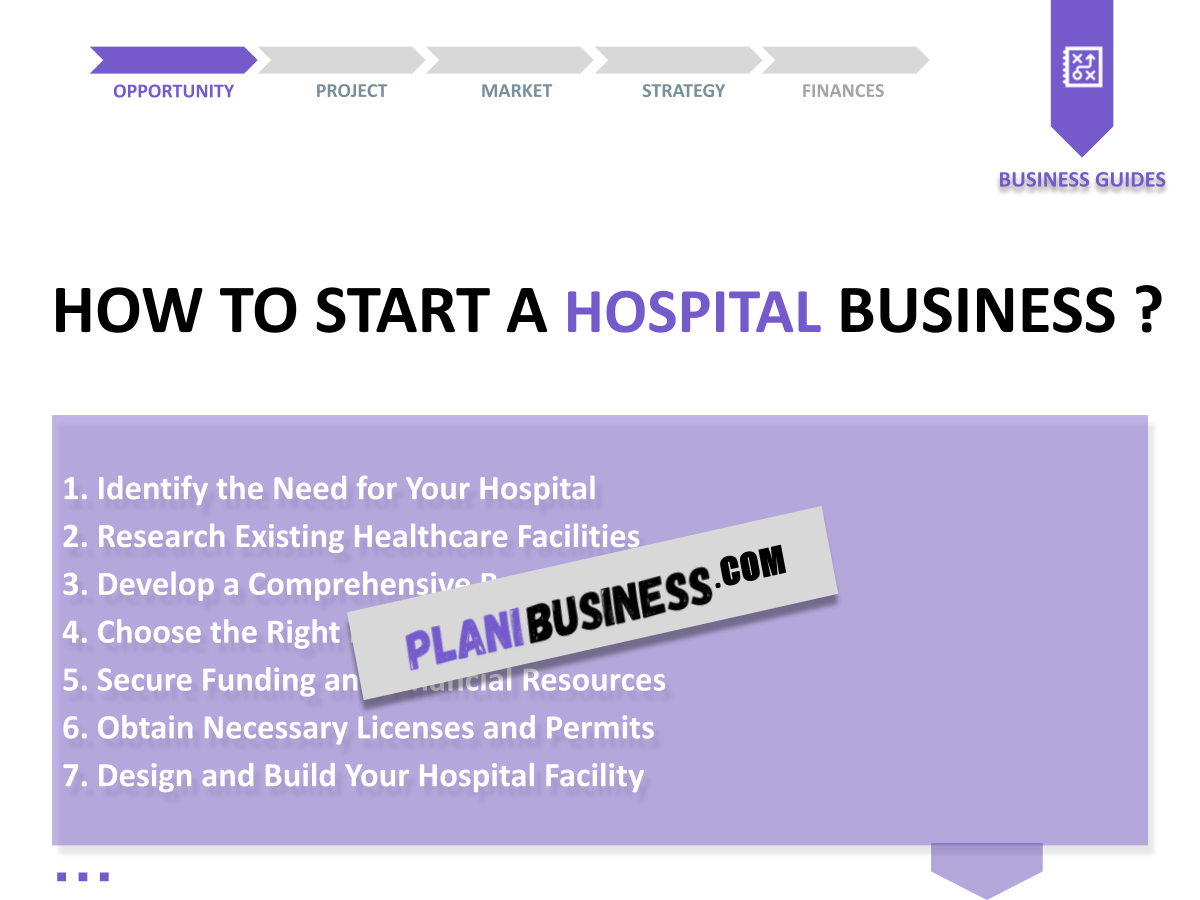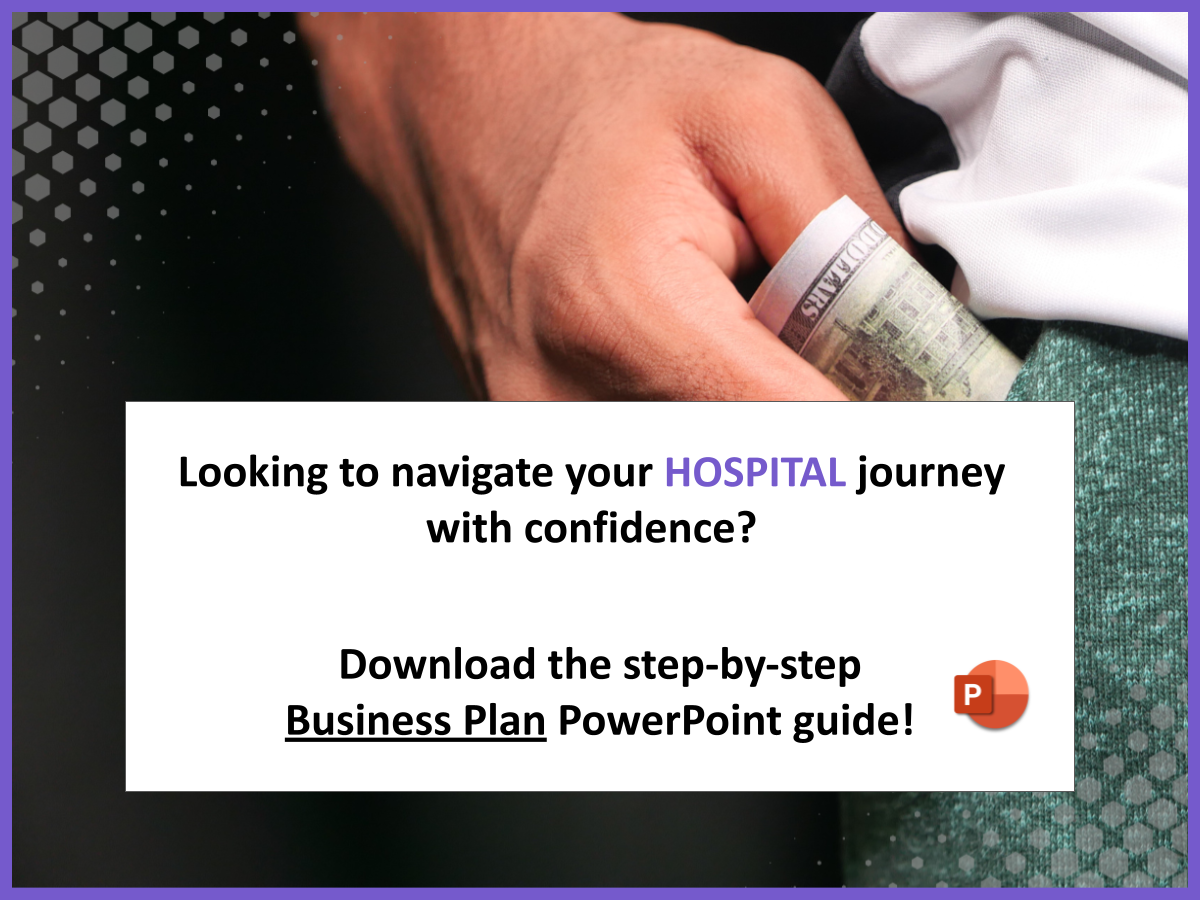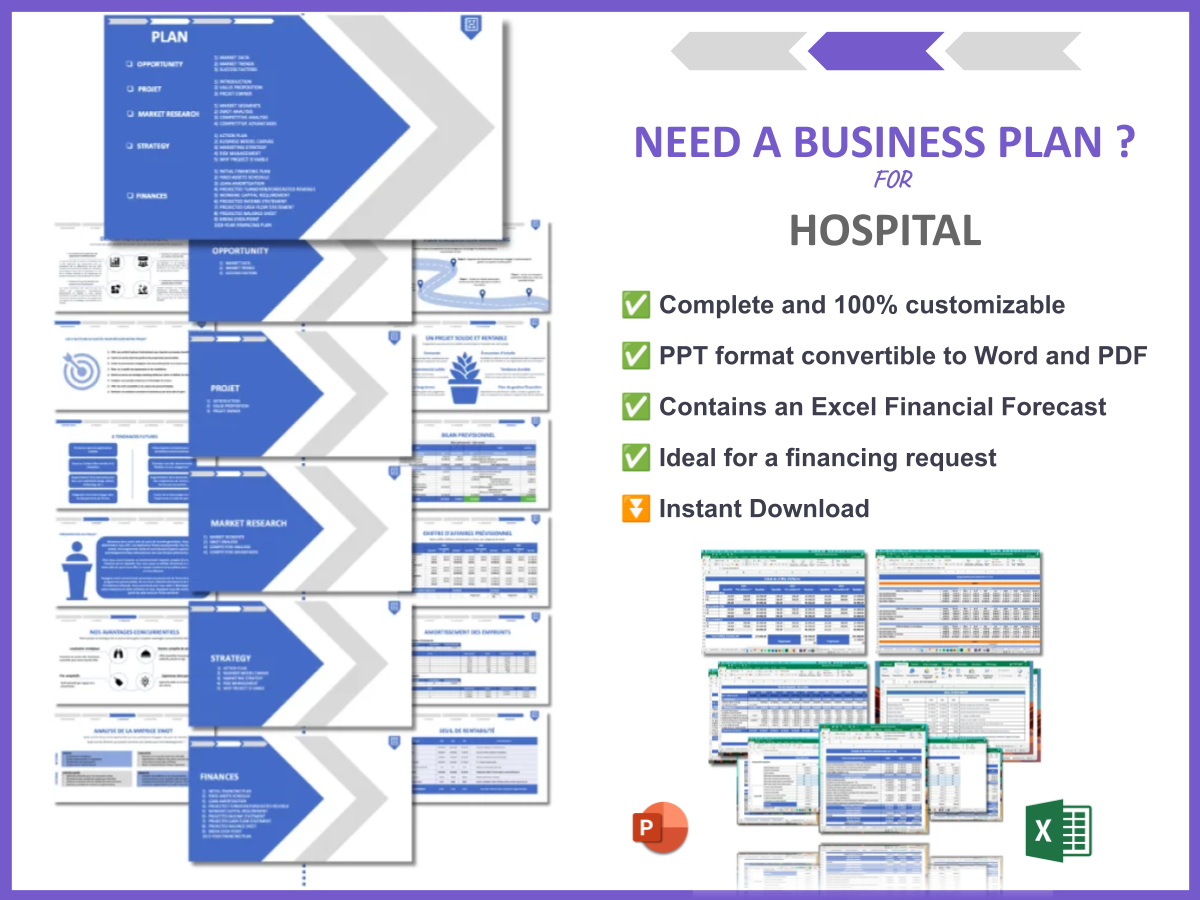Are you thinking about starting a hospital? You’re not alone! The healthcare industry is booming, and many aspiring entrepreneurs are looking to make a significant impact in their communities. Did you know that the demand for healthcare services is projected to increase by over 15% in the next decade? This staggering statistic shows just how crucial healthcare facilities are becoming. In this article, we’ll dive into the essentials of how to start a hospital, providing you with a roadmap to navigate this complex journey.
1. Identify the Need for Your Hospital
Before you jump into how to start a hospital, it’s crucial to identify the specific healthcare needs in your target area. This isn’t just about opening a building; it’s about serving your community effectively. Here are some practical steps to help you:
- Conduct Surveys: Gather feedback from potential patients about what services they feel are missing.
- Meet Community Leaders: Engage with local leaders to understand broader health issues affecting the population.
- Analyze Health Data: Look at statistics related to local health problems, hospital readmission rates, and population demographics.
By taking these steps, you can ensure that your hospital meets the real needs of the community, making it more likely to succeed.
2. Research Existing Healthcare Facilities
Next, it’s time to look at the competition. Analyzing existing hospitals and clinics in your area will give you valuable insights. Here’s how you can approach this research:
Start by listing out all the healthcare facilities within a 20-mile radius of your intended location. For each facility, consider the following:
| Facility Name | Services Offered | Strengths |
|---|---|---|
| Community Hospital A | General Care, Pediatrics | Strong Community Relations |
| Health Center B | Urgent Care, Diagnostics | 24/7 Availability |
| Specialty Clinic C | Orthopedics, Physical Therapy | Expert Staff |
With this table, you can easily see where the gaps are. For instance, if no facility offers specialized geriatric care, you might consider including that in your services. This analysis will help you determine what unique offerings you can provide to set your hospital apart and ensure it meets the community’s needs.
3. Develop a Comprehensive Business Plan
Your business plan is your roadmap to success when it comes to how to start a hospital. This document will not only guide you through the initial stages but will also help in securing funding from investors and banks. Here are the key components you should include in your business plan:
- Executive Summary: A brief overview of your hospital’s mission, vision, and goals.
- Market Analysis: Insights into the healthcare needs of your community and an analysis of competitors.
- Services Offered: A detailed description of the medical services you plan to provide.
- Marketing Strategy: How you plan to attract and retain patients.
- Financial Projections: Budgeting for startup costs and expected revenue streams.
I recommend checking out this business plan template for Hospital. It’s super detailed and can save you a ton of time!
Creating a business plan might feel overwhelming, but breaking it down into these components can simplify the process. Remember, your plan should be flexible; as you gather more information and feedback, be ready to adjust your strategies.
4. Choose the Right Legal Structure
Deciding on the legal structure of your hospital is crucial in the process of how to start a hospital. The structure you choose will affect everything from taxes to personal liability. Here are some common options:
| Legal Structure | Advantages | Disadvantages |
|---|---|---|
| Sole Proprietorship | Simple to set up and run | Unlimited personal liability |
| Partnership | Shared responsibilities and resources | Potential for conflicts between partners |
| Corporation | Limited liability for owners | More complex and costly to set up |
Each option has its own pros and cons, so it’s essential to consult with a legal expert to determine which structure is best for your situation. This decision will set the foundation for your hospital’s operations and future growth, so take your time and weigh your options carefully.
5. Secure Funding and Financial Resources
Starting a hospital is no small feat, and securing the necessary funding is one of the most critical steps in how to start a hospital. Without adequate financial resources, your vision could remain just that—a vision. Here are some strategies for securing funding:
- Bank Loans: Traditional loans can provide the capital you need, but be prepared to show a solid business plan and financial projections.
- Investors: Look for private investors or venture capitalists interested in healthcare opportunities. Pitch your unique value proposition effectively to attract interest.
- Grants: Research government and private grants that support healthcare initiatives. These funds often come with fewer strings attached than loans.
It’s essential to create a detailed budget that outlines your startup costs and ongoing expenses. Understanding your financial needs will help you communicate effectively with potential funders.
| Funding Source | Advantages | Disadvantages |
|---|---|---|
| Bank Loans | Lower interest rates | Strict qualification criteria |
| Private Investors | Flexible terms | Loss of control |
| Grants | No repayment required | Highly competitive |
By diversifying your funding sources, you can create a more stable financial foundation for your hospital. Make sure to have a backup plan in case one source falls through.
6. Obtain Necessary Licenses and Permits
Legal compliance is paramount in the healthcare sector, especially when it comes to how to start a hospital. Failing to secure the necessary licenses and permits can lead to severe consequences, including fines or even closure. Here’s what you need to know:
Start by researching the specific licenses required in your state or country. These often include:
- Health Department Permits: Required to ensure that your facility meets health and safety standards.
- Business Licenses: General business permits needed to operate legally.
- Medicare/Medicaid Certification: Necessary if you plan to accept government insurance.
It’s advisable to consult with a healthcare attorney who can guide you through the legal maze and ensure that you meet all regulatory requirements. Keeping your hospital compliant will help build trust with your patients and the community.
7. Design and Build Your Hospital Facility
The design and layout of your hospital are crucial components in the process of how to start a hospital. A well-planned facility not only enhances operational efficiency but also improves patient comfort and satisfaction. Here are some key considerations:
- Patient Flow: Design the layout to facilitate smooth movement for patients and staff. Consider separate entrances for emergency and elective patients.
- Accessibility: Ensure that all areas of the hospital are accessible to individuals with disabilities, following ADA guidelines.
- Emergency Services: Allocate space for urgent care and emergency services that are easily accessible to the public.
Collaborate with experienced architects and healthcare planners who understand the specific needs of medical facilities. Here’s a brief checklist to guide your design process:
- Identify necessary departments (e.g., emergency, maternity, surgery).
- Plan for future expansion to accommodate growth.
- Incorporate technology needs for modern healthcare delivery.
Remember, the design should not only focus on aesthetics but also on functionality. Investing in a well-thought-out design can lead to better patient outcomes and operational efficiency.
8. Hire a Competent Team
Your team will be the backbone of your hospital, making it essential to hire qualified professionals who align with your vision for how to start a hospital. Here’s how to go about assembling a competent team:
- Define Roles: Clearly outline the positions you need to fill, from administrative staff to specialized medical personnel.
- Recruitment Strategies: Use various channels like job boards, social media, and local universities to attract talent.
- Interview Process: Develop a thorough interview process that assesses not only skills but also cultural fit and alignment with your hospital’s mission.
Once you have your team in place, consider investing in training and development programs to ensure they are well-equipped to provide high-quality care. Here’s a brief overview of essential roles to consider:
| Role | Responsibilities | Importance |
|---|---|---|
| Chief Medical Officer | Oversee clinical operations | Ensures quality patient care |
| Nurses | Direct patient care | Key to patient satisfaction |
| Administrative Staff | Manage operations and finances | Supports overall hospital functionality |
Building a strong, dedicated team will not only enhance your hospital’s reputation but also improve patient outcomes, leading to long-term success.
9. Establish a Marketing Strategy
Once your hospital is ready to open, you need a solid marketing strategy to attract patients and build a strong community presence. An effective marketing plan is essential in the journey of how to start a hospital. Here are some key elements to consider:
- Brand Identity: Develop a strong brand that resonates with your target audience. This includes your logo, color scheme, and messaging.
- Online Presence: Create a user-friendly website that provides essential information about your services, staff, and location. Optimize it for search engines to improve visibility.
- Community Engagement: Participate in local events and health fairs to raise awareness about your hospital. Offer free health screenings or workshops to build trust within the community.
Here’s a simple checklist to guide your marketing efforts:
- Define your target audience.
- Create engaging content for social media platforms.
- Implement email marketing campaigns to keep patients informed.
Utilizing both online and offline marketing strategies will help you reach a wider audience and establish your hospital as a trusted healthcare provider in the community.
10. Implement Financial Management Systems
Efficient financial management is crucial for the sustainability of your hospital. In the context of how to start a hospital, setting up robust financial systems will help you track expenses, revenues, and patient billing accurately. Here are some essential components to consider:
- Accounting Software: Invest in reliable accounting software that can handle billing, payroll, and expense tracking. This will simplify your financial processes.
- Budgeting Tools: Use budgeting tools to forecast your expenses and revenues. This can help you make informed financial decisions.
- Regular Financial Reviews: Schedule regular reviews of your financial health to assess performance and identify areas for improvement.
Here’s a brief overview of some popular financial management tools:
| Tool | Features | Benefits |
|---|---|---|
| QuickBooks | Invoicing, expense tracking | User-friendly interface |
| Xero | Bank reconciliation, reporting | Cloud-based access |
| FreshBooks | Time tracking, project management | Ideal for small to medium-sized practices |
By implementing effective financial management systems, you’ll ensure your hospital operates smoothly and remains financially viable in the long run. Keeping a close eye on your finances will allow you to allocate resources efficiently and invest in necessary improvements.
11. Create a Patient-Centric Environment
In the healthcare industry, providing excellent patient care is paramount. As you explore how to start a hospital, it’s essential to design your services and facilities with a patient-centric approach. Here are some strategies to consider:
- Comfortable Facilities: Ensure that waiting areas and patient rooms are comfortable and welcoming. Consider amenities like Wi-Fi, comfortable seating, and calming decor.
- Patient Feedback: Regularly solicit feedback from patients about their experiences and use this information to make improvements.
- Accessible Services: Make sure that your services are easily accessible, including clear signage and online appointment scheduling.
Here’s a brief list of features that can enhance the patient experience:
- Private patient rooms for confidentiality.
- Efficient check-in and discharge processes.
- Trained staff focused on customer service.
By prioritizing patient comfort and satisfaction, your hospital can build a loyal patient base and improve overall health outcomes.
12. Monitor and Evaluate Performance
Once your hospital is operational, it’s vital to continuously monitor and evaluate its performance. This is a crucial step in the journey of how to start a hospital and ensures that you are providing high-quality care. Here are some effective strategies:
- Key Performance Indicators (KPIs): Establish KPIs to measure patient outcomes, staff efficiency, and financial stability.
- Patient Satisfaction Surveys: Regularly conduct surveys to assess patient satisfaction and identify areas for improvement.
- Staff Performance Reviews: Implement performance reviews to ensure staff are meeting the standards of care you expect.
Here’s a brief overview of some essential KPIs to track:
| KPI | Purpose | Frequency of Review |
|---|---|---|
| Patient Readmission Rate | Measures quality of care | Monthly |
| Average Length of Stay | Indicates efficiency | Quarterly |
| Patient Satisfaction Score | Assesses patient experience | Biannually |
By regularly reviewing these metrics, you can identify trends and make informed decisions that enhance your hospital’s performance and patient care.
13. Stay Updated with Healthcare Trends
The healthcare industry is constantly evolving, making it essential to stay updated with the latest trends and innovations. This ongoing education is a key component of how to start a hospital successfully. Here are some ways to keep your knowledge current:
- Attend Conferences: Participate in healthcare conferences to network and learn about new developments in the field.
- Subscribe to Journals: Read medical journals and industry publications to stay informed about research and best practices.
- Join Professional Associations: Becoming a member of healthcare associations can provide access to resources, training, and networking opportunities.
Here’s a brief list of some valuable resources to consider:
- American Hospital Association (AHA)
- Healthcare Information and Management Systems Society (HIMSS)
- Centers for Disease Control and Prevention (CDC) updates
By staying informed and adapting to changes in the healthcare landscape, you can ensure that your hospital remains competitive and continues to meet the needs of your community.
Conclusion
Starting a hospital is a complex yet rewarding endeavor that requires careful planning, dedication, and a focus on community needs. By following the steps outlined in this guide on how to start a hospital, you can lay a solid foundation for your healthcare facility. Remember, the key to success lies in understanding your community, assembling a competent team, and continuously adapting to the ever-changing healthcare landscape.
To further enhance your knowledge and strategy, I recommend checking out our articles on how to create a SWOT Analysis for Hospital and how to kickstart a Hospital Marketing Plan with Examples. These resources will provide you with valuable insights and tools to make informed decisions as you embark on this journey.
FAQ
1. What are the initial steps to start a hospital?
The first steps include identifying community healthcare needs, conducting market research, and developing a comprehensive business plan.
2. How much does it cost to start a hospital?
The cost varies significantly based on location, size, and services offered, but initial investments can range from millions to hundreds of millions of dollars.
3. What licenses are required to open a hospital?
You will need various licenses, including health department permits, business licenses, and Medicare/Medicaid certification, depending on your location.
4. How can I secure funding for my hospital?
Funding options include bank loans, private investors, grants, and partnerships. A solid business plan is crucial for attracting financial support.
5. What should be included in a hospital business plan?
Your business plan should cover your vision, market analysis, services offered, marketing strategy, and financial projections to guide your hospital’s development.
6. How do I hire the right staff for my hospital?
Define clear roles, utilize various recruitment channels, and conduct thorough interviews to ensure you hire qualified professionals aligned with your hospital’s mission.
7. What marketing strategies are effective for hospitals?
Effective strategies include creating a strong online presence, engaging with the community, and utilizing social media to attract and retain patients.
8. How can I ensure patient satisfaction in my hospital?
Focus on creating a patient-centric environment by soliciting feedback, providing comfortable facilities, and ensuring accessible services.
9. What are key performance indicators (KPIs) for hospitals?
KPIs may include patient readmission rates, average length of stay, and patient satisfaction scores to assess the hospital’s performance and quality of care.
10. How can I stay updated on healthcare trends?
Attend industry conferences, subscribe to relevant journals, and join professional associations to keep abreast of the latest developments in healthcare.







